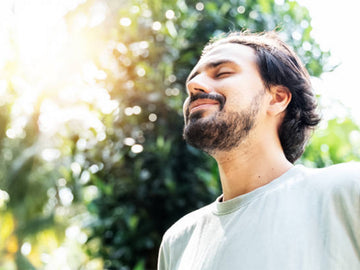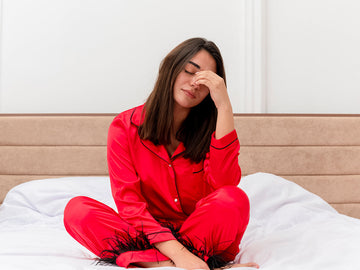If you've been waking up groggy or struggling to fall asleep at night, the culprit might not be your mattress or your screen time—it could be a lack of sunlight. Yup, the secret to better sleep may start with stepping outside.
Turns out, sunlight does way more than just brighten your day—it also regulates your internal body clock (a.k.a. circadian rhythm), which controls when you feel sleepy and when you're wide awake.

☀️ Here's how it works:
Your body produces melatonin, a natural hormone that helps you fall asleep. But it only gets released when it’s dark. Exposing yourself to natural sunlight in the morning helps your body know it’s time to wake up—and starts the countdown to melatonin production later in the evening.
Think of sunlight as your sleep schedule's personal trainer.
🌿 So how much sunlight do you need?
Experts suggest around 20–30 minutes of natural sunlight, ideally in the first half of the day. You don't need to sunbathe or do yoga in the park (unless you want to), just open your windows, sip your chai on the balcony, or go for a quick walk.
💡 What happens when you don’t get enough sun?
-
Your melatonin production gets delayed
-
You may feel tired during the day and wired at night
-
Your sleep cycle can get out of whack
If you’re stuck indoors or in a city that doesn’t get enough sun, you can support your sleep naturally with a trusted sleep aid.
That’s where Morning Fresh Sleep comes in. It’s a gentle, plant-based sleep supplement that works with your body’s rhythm. Packed with 5mg melatonin, tulsi, mulberry leaf extract and more, it helps reset your sleep cycle and eases you into deep, restful sleep—without sugar, caffeine or forming habits.

🌞 Pro tips to sync your sleep with sunlight:
-
Morning walk = better night’s sleep
-
Avoid bright lights post-sunset (yes, that includes your phone!)
-
Keep your room dark at night so melatonin can do its thing
-
Try Morning Fresh Sleep on days your rhythm feels off or while adjusting to a new routine
Whether you're working from home, traveling, or just trying to sleep better, remember this: a little sunlight during the day can go a long way when it comes to better sleep at night.




